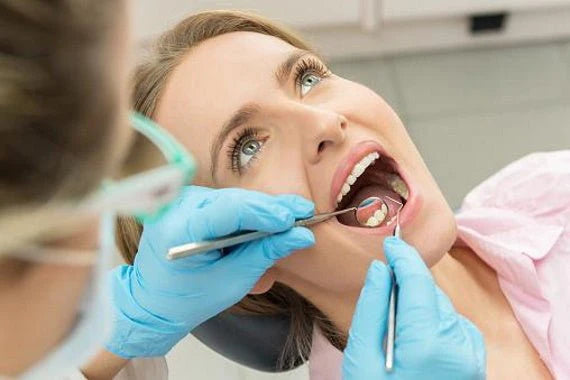Daily brushing and flossing help keep your teeth clean, protecting them from plaque that attracts bacteria. Too many bad bacteria can lead to cavities.
However, if you've been neglecting your smile, find out what you need to know about tartar and the effect it has on your teeth.
Tartar is a hardened plaque.
Plaque is the sticky substance that settles between your teeth when you eat and drink. Some foods, such as bread, create less plaque, while hard cheeses and apples can remove the plaque completely when you eat them.
If you don't brush your teeth properly or you don’t brush them at all, the sticky plaque will stay on your teeth before it turns into tartar. Also, if you have crooked or broken teeth, it can be difficult to remove the daily accumulation of plaque.
The remaining plaque will turn into tartar in about 24 to 72 hours. Like plaque, tartar can attract bacteria, which can make the problem even worse.
You can often spot tartar yourself by looking for yellowish stains near the gum line.
Tartar can lead to many complications.
Tartar causes many complications. Firstly, tartar makes it more difficult to clean your teeth. You can't brush the tartar, so you can't brush the tooth tissue underneath the tartar.
If there is a lot of tartar build-up between your teeth, flossing can also be difficult. If you can't clean your mouth properly, the problem will only get worse.
Tartar does not only cause cavities. It can also irritate your gums and cause gum disease. If you only develop gingivitis, you can work on it quickly with a suitable toothpaste and mouthwash.
However, if your teeth have been damaged by periodontitis, the effects are irreversible without major procedures such as gum grafts.
If you develop periodontitis because of your tartar, spaces may grow between the tooth and the gums. Bacteria love it because it gives them a new access point to your teeth: the root, which is not protected by enamel. The gums are supposed to protect the root of the tooth, and if they don't do their job, serious decay and infections can soon follow.
Tartar should be removed by a professional.
Brushing and flossing every day is very important because plaque quickly turns into tartar and once it is tartar, you can't remove it yourself, or at least, you shouldn't.
Tartar build-up needs to be scraped off. If you try to do this at home, you risk scratching the enamel and seriously damaging your teeth.
For this reason, you should visit your dentist to remove tartar. The dental assistant will safely remove the tartar from your teeth with a sharp tool. Teeth are also smoothed, because a rough surface makes it easier for plaque and bacteria to adhere.
Depending on the amount of tartar, your dentist may recommend that you use an electric toothbrush, buy special fluoride toothpaste and avoid certain foods.
How to prevent tartar build-up
Fortunately, it is easy to avoid the formation of limescale. All you have to do is practice good dental hygiene.
Yes, this means brushing your teeth, flossing every day and using mouthwash.
Finally, you should visit your dentist every six months for a thorough cleaning. Not only will your dentist remove hard-to-reach plaque and tartar, but he or she will also give you tips on how to take better care of your teeth. There are so many good reasons to take care of your teeth!



